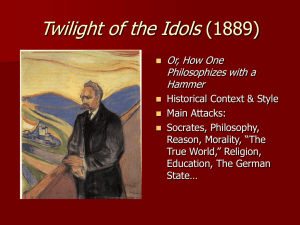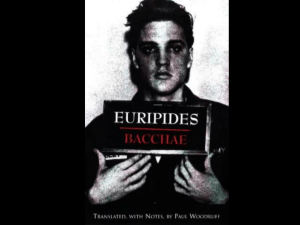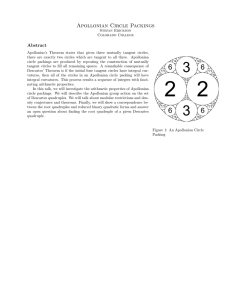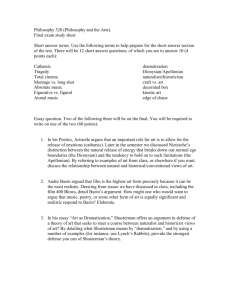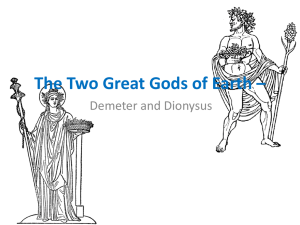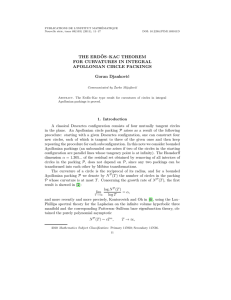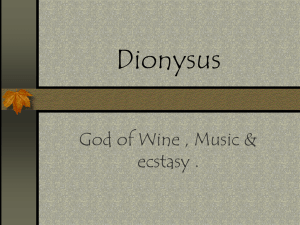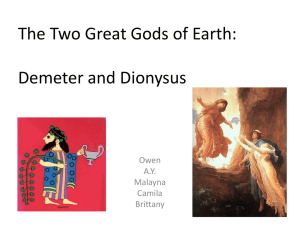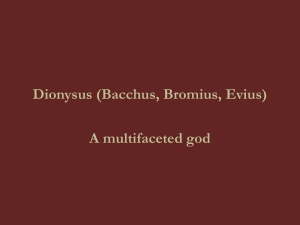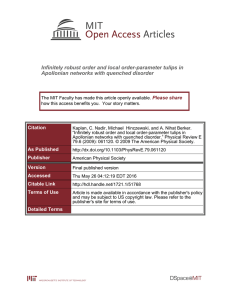File
advertisement
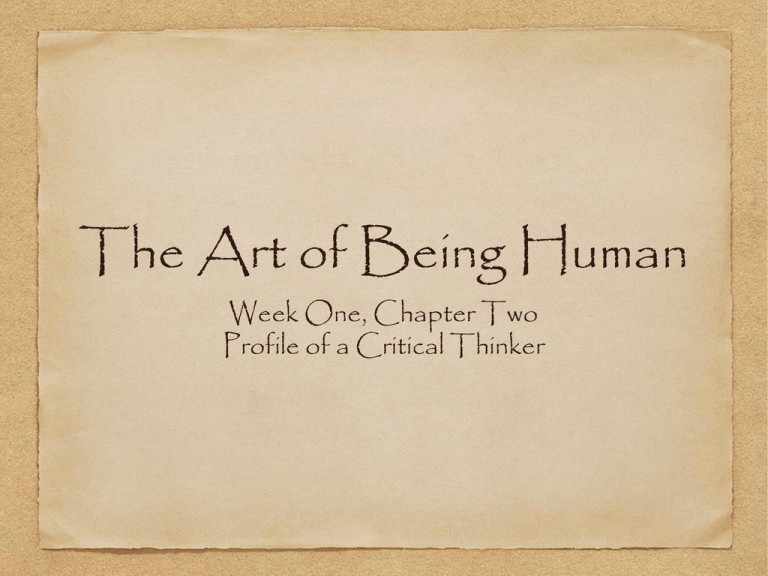
The Art of Being Human Week One, Chapter Two Profile of a Critical Thinker Critical Thinking Do you look at things from all angles? Ask yourself, “What are the other perspectives?” Friedrich Nietzche 1844 - 1900 German Philosopher Nietzche Made the distinction between Apollonian and Dionysian sides of the human personality Believed that humans should balance the two sides. Apollonian Response Side of personality dominated by disciplined, analytical, rational, and coherent thought. The side that responds to Greek tragedy by seeking it’s meaning. Dionysus Side of the human personality dominated by emotion, intuition, and freedom from limits. This personality side responds emotionally The Popcorn Syndrome Caution: everyone loves a “good read” or a “popcorn” movie -- one in which you really like it, and you don’t want to analyze it--okay sometimes, but is always a shallow response. Too much Dionysus = hangover. Empathy and Alienation Too much Apollonian response: only analysis is bad too -- we should empathize with characters in a story, or listen to beautiful music or stand and stare at great art. e.e. cummings -- poet anyone lived in a pretty how town (with up so floating many bells down) spring summer autumn winter he sang his didn’t he danced his did Apollonian response: Dionysus response: Drops of Jupiter Now that she’s back in the atmosphere With drops of Jupiter in her hair, hey She acts like summer and walks like rain Reminds me that there’s a time to change, hey Since the return from her stay on the moon She listens like spring and she talks like June, hey, hey Apollonian response: Dionysus response: (my favorite lines:) Now that she’s back in the atmosphere I’m afraid that she might think of me as Plain ol’ Jane told a story about a man Who was too afraid to fly so he never did land. Responding Critically Defining what it is we want to determine: Why did this film work for me? Putting aside instinctive, emotional responses. Collecting and analyzing all pertinent factors. Evaluating the work or the topic in its proper context. Forgetting how it relates only to you--Example, I know it’s good because the main character is young like me. Have an informed opinion. Exercise the Mind Everything I say is a lie. Time travel: You go back in time and kill your father. “Why buy new when slightly used will do, except when the deals are this good.” Challenge Assumptions 50 common misconceptions -But, more seriously: Henry Ford: the car can be produced so everyone can afford it No one will ever fly Ken Olson, CEO of DEC -- “There is no reason anyone would want a computer in their home.” What about social issues? Blacks and Whites can never marry. Goth people are violent, etc. Recognizing Context Nothing happens in a void Selective memory -- who is telling the story? Shakespeare = movie smash hits West Side Story (R and J) 10 Things I Hate about you (Taming of the Shrew) The Lion king = Hamlet La Beheme = Rent Pride and Prejudice = You’ve got mail, Bridge Jones’ Diary Click here for more Become an Informed Critic Don’t jump to conclusions! Art is the illusion that there is no art. Literalist Bad tuned into what is happening at the moment accept other people’s view without thinking about it Figuratist Good Critical Thinker -- who can talk about things in a deeper level Often uses metaphors, playful language. Noel Coward and Winston Churchill Coward invited Churchill to opening night of his plays and added, “feel free to bring a friend if you have one.” Churchill responded: “I won’t be able to make the opening, but I will come the second night if there is one.” They were Figuratists Key Terms Alienation Apollonian context critical thinking Dionysian empathy figuratist imagery literalist sonnet rationalizing review SONNET 14 LINE POEM WITH A COUPLET AT THE END. ENGLISH/BRITISH 12 AND 2 ITALIAN 6, 6, 2 REVIEW CAREFUL EVALUATION OF A WORK OF LITERATURE, DRAMA, VISUAL ART, MUSIC, OR CINEMA BY A PROFESSIONAL CRITIC.
